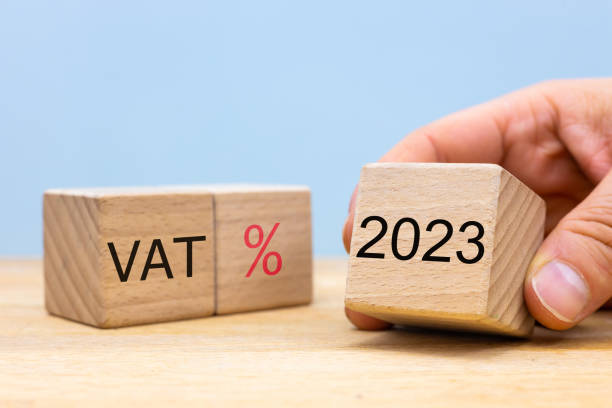Dubai stands as the next business destination for entrepreneurs worldwide, offering endless opportunities across diverse…

10 Essential Tips for Successful VAT Compliance and Audits in UAE
Value Added Tax (VAT) compliance and audits are crucial aspects of running a business in the United Arab Emirates (UAE) or any part of the world. With the UAE’s implementation of VAT in recent years, it’s essential for businesses to understand how to manage their VAT obligations effectively.
In this article, we’ll explore ten valuable tips to ensure seamless VAT compliance and successful handling of audits in the UAE. This guide will help you fulfil your entire VAT compliance and Audits in UAE.

1. Understand VAT Basics
Begin by comprehending the fundamentals of VAT. Familiarize yourself with VAT rates, taxable supplies, and exemptions relevant to your industry. This foundational knowledge will set the stage for accurate compliance.
Let Understand VAT Basics in Details
Vat Rates: UAE government introduce VAT system on 1 January 2018, VAT rate at 5% will be applicable on local supplies of goods and services in the State covering all the Emirates such as Abu Dhabi, Dubai, Ajman, Sharjah, Ras Al Khaima, Fujairah and Umm Al Quwain. On Export of goods and services from UAE VAT rate us 0%.
Taxable Supplies: These are the good and services on which VAT is applied, identifying what falls under taxable supplies is a cornerstone of VAT management .
Exempt Supplies: Certain essential goods and services are exempt from VAT charged on them. examples include residential property leasing and certain financial services.
Input and Output VAT: Input VAT refers to the VAT paid on purchase for business operation. this can be reclaimed, offsetting it against the Output VAT-VAT charged on sale.
VAT Returns: Businesses are required to submit VAT return periodically, detailing their taxable supplies, Input VAT, Output VAT, Payable of refundable amount.
Place Of Supply: Determining the location of supply is important for applying the correct VAT rate. the place of supply ensure accurate taxation.
2. Maintain Accurate Records
Maintaining accurate records of all financial transactions is essential. Ensure that you keep detailed records of invoices, receipts, expenses, and other relevant documents. A robust record-keeping system simplifies audits and helps you identify discrepancies early.
- Seamless Audit : Think of an audit as a tour through your money matters. clear records are like bright sign that shows auditors where to go. this makes audits faster and shows your are open about your finances.

3. Invest in VAT Software
Utilize specialized VAT software to streamline your compliance processes. These tools can assist in generating accurate VAT returns, tracking transactions, and automating calculations, minimizing the risk of errors.
Automation Of Calculations: VAT calculation can tough, especially with different rate and expiations. but VAT software acts like super smart calculator. it does all the math for you. so your invoices and results are always right.
Efficient Transaction Tracking: Keeping track of transaction by hand take time and can lead to mistake. but VAT software create a digital path, smoothly noting down transactions. what you bought what you sold. this makes doing VAT return much simple.
Real Time Compliance Monitoring: Just Keep in mind VAT rules can change, VAT software gets updates quickly. this means you always know the latest rule.
Enhanced Record Keeping: VAT software puts all your financial info in one spot, making it super easy to manage. This neat system makes record-keeping a breeze and helps you quickly find info for audits or when tax folks ask..
Minimized Penalties: Messing up VAT reports can mean fines. But with VAT software, mistakes are way less likely. This means you follow the rules better, avoid money troubles, and keep things smooth.
Time and Resource Saving : VAT software saves time and effort by doing stuff automatically. This means your team can focus on important things instead of doing boring manual tasks like typing numbers.
4. Timely VAT Registration
In the UAE, when your business hits the VAT registration threshold, registering on time is a must. It keeps you away from penalties and opens doors for advantages. Registering on time lets you reclaim input VAT on costs, making your finances stronger. Even if you’re below the threshold, registering voluntarily is smart. It helps you get back input VAT and shows you’re clear about money matters. Knowing these registration tricks helps dodge penalties, grab financial chances, and show trustworthiness in the UAE market.
Mandatory Registration: Business who crosses mandatory turnover threshold need to register under VAT within 30 days of crossing taxable turnover of AED 375,000.
Voluntary Registration: Businesses that don’t meet the mandatory VAT registration threshold can still opt for voluntary registration if their taxable turnover in last 12 months or in next 30 days crosses AED 187,500.
5. Appoint a VAT Expert
Consider hiring a VAT consultant or expert who is well-versed in UAE’s VAT laws. Their expertise can guide you in understanding intricate regulations, ensuring compliance, and optimizing your VAT strategies. Getting a VAT expert on board is smart for handling UAE’s VAT rules. They’re like guides who know the twists and turns. These pros understand UAE’s VAT laws really well. They help you follow tricky rules and make smart VAT moves. With them, you’re less likely to make mistakes and you can make wise money choices. Having a VAT expert is like having a helper to meet VAT rules, handle audits, and get more out of UAE’s business scene.
6. Educate Your Team
Provide adequate training to your finance and accounting teams regarding VAT regulations and compliance procedures. A well-informed team is better equipped to handle day-to-day transactions accurately.
7. Regularly Review Contracts
Review your contracts and agreements to ensure they include the necessary VAT-related clauses. Clear contractual terms help in preventing disputes and misunderstandings related to VAT obligations.
8. Perform Internal Audits
Conduct regular internal audits to identify discrepancies or potential issues before official audits take place. This proactive approach allows you to rectify mistakes and maintain compliance.
9. Monitor Changes in Regulations
VAT regulations may evolve over time. Stay updated with changes in UAE’s VAT laws and adapt your compliance strategies accordingly. Ignorance of updated regulations can lead to non-compliance and penalties. Star Storm is the best Tax & VAT Consultant in Dubai, UAE to help you stay organized and compliance.
10. Prepare for Audits
In the event of an audit, preparation is key. Ensure that all your records are well organized and readily accessible. Collaborate transparently with auditors, addressing their queries promptly and providing necessary documentation.
Conclusion
VAT compliance and audits need not be daunting tasks for businesses in the UAE. By understanding the basics, investing in technology, and fostering a culture of accurate record-keeping, you can navigate the complexities of VAT seamlessly. Remember, staying informed, proactive, and prepared is the recipe for successful VAT compliance and audit management in the UAE.
If You’ve got Questions, and we have answers. just send us a message and one of our knowledgeable support staff will be in contact with you within 48hrs-even on Weekends.



